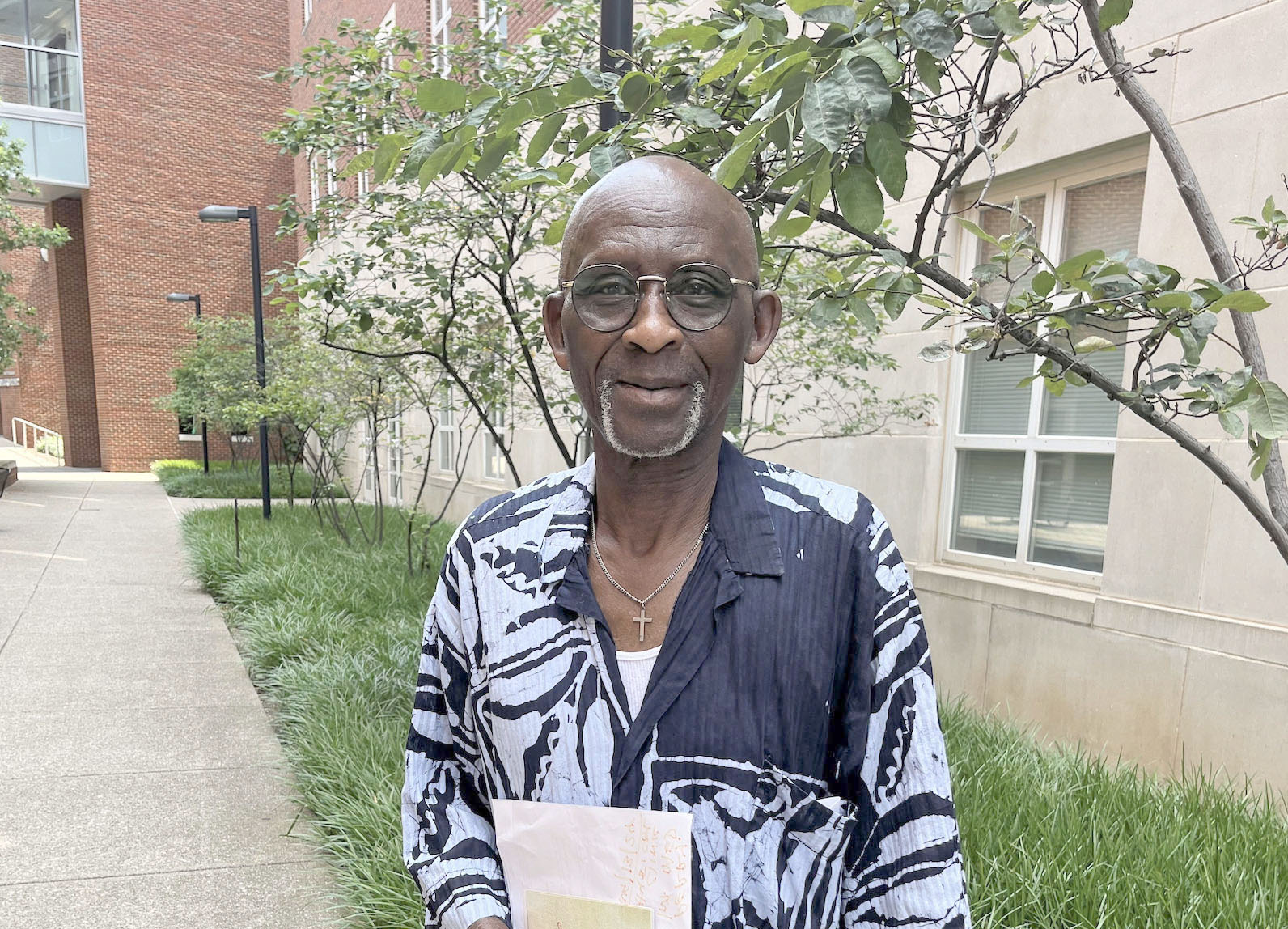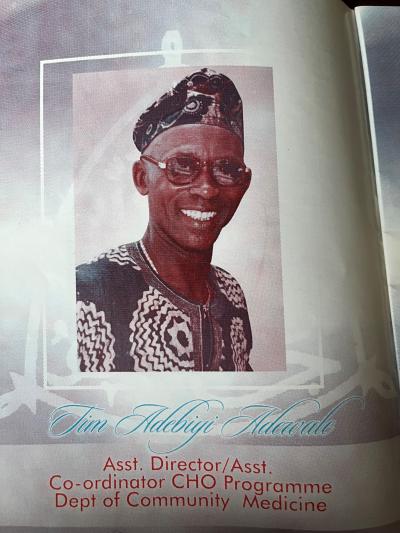Meeting the Challenge with ‘Attitude and Character’
Aug 6, 2024
Two-time CHS Alumnus Provided Healthcare Help Around the World
By Loralyn Cecil
CHS Philanthropy Director
Today, more than one million students from foreign countries attend American universities. In 1970 that enrollment was closer to 300,000 — and one of those students was Tim Adewale.
Adewale grew up in Lagos, Nigeria. He was inspired to come to America when he noticed that the best teachers at his local schools had studied in the United States. Adewale wanted to be a doctor. A great education, he recognized, would set him on the path to becoming a health care professional — even if the path stretched across the Atlantic Ocean.

He started on the path 1970s style. He went to the library.
He looked through stacks of books and periodicals about American universities. He sent handwritten letters requesting applications. He completed forms by hand and mailed those, too. Then he watched the mail faithfully.
One of the schools that responded to his request was Transylvania University. The university invited Adewale to become a student and extended a scholarship offer. From the moment he got off the Greyhound bus in Lexington, he was treated well, he said. The admissions director met him at the bus station in Lexington and walked him to the Transylvania campus.
The admissions director and faculty connected Adewale to a host family, the family of Dr. Farra Van Meter.
“Dr. Van Meter took me in like family,” said Adewale. He helped Adewale find a job at a medical clinic, and generously advised him on academic and career decisions.
Adewale thrived. He made the Dean’s list every semester. He was also the soccer captain. He enjoyed Lexington.
“I blended in,” Adewale said with a quick laugh. “I am not kidding.”
As Adewale was nearing graduation, he considered the possibility of taking the entrance exam for medical school. The cost to take the test, though, discouraged him. Dr. Van Meter thought there could be a different, better route for Adewale. He suggested enrolling in the medical technology program at the University of Kentucky.
The medical technology program had a reputation for being rigorous, but Adewale continued to excel. It was a small class, and he was the only international student.
“You must be qualified academically and have the attitude and character to meet the challenge,” he said.
While at UK, Adewale and students from South America created a soccer team.
“In the evening, we would play and hope the police would not chase us off the lawn,” he said.
After soccer and studies, he worked at UK in pathology.
After graduating as a medical technologist, Adewale worked at St. Joseph Hospital in Lexington. He was later promoted to a clinical role in surgery. During this time, he married and had children as well.

In 1979 he had an opportunity to work at a teaching hospital in Nigeria.
“I told Dr. Van Meter, and he said, ‘Grab it.’”
Adewale was glad he did. It was an opportunity to continue his work in health care while being closer to his parents. He also welcomed the opportunity for his wife to travel and have access to professional opportunities abroad.
Ever devoted to education and health care, Adewale returned to the United States after several years. He enrolled in the Physician Assistant Studies program at UK and graduated in 1994. He calls his work as a physician assistant, “the best of my life.”
He returned to Nigeria where he worked for Ahmadu Bello University at the teaching hospital in Zaria. He was responsible for supporting students during their clinical rotations in pediatric health. He co-authored a curriculum for students enrolled in the Nigerian medical program and appreciated the opportunity to help prepare the next generation of medical care providers.
Today Adewale is retired and living in the United States. He is very appreciative of his education at the UK College of Health Sciences.
He credits his CHS education with helping to provide a lifetime of work that was deeply meaningful and significant.
“I can’t say anything more than “Thank you, God,” he said.
This year marks the 75th anniversary of Lyman T. Johnson’s historic legal triumph against the University of Kentucky, a milestone that marked him as the first Black student to integrate the University.
Each month, the College of Health Sciences will explore another story that honors Johnson’s legacy, from trailblazers who led the way in healthcare to those who personally benefited from his accomplishments. Look for the CHS stories on the college’s website and social media.